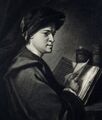Template:Selected anniversaries/May 29: Difference between revisions
From Gnomon Chronicles
No edit summary |
No edit summary |
||
| Line 1: | Line 1: | ||
<gallery mode="traditional"> | <gallery mode="traditional"> | ||
File:Tycho Brahe.jpg|link=Tycho Brahe (nonfiction)|1569: Astronomer [[Tycho Brahe (nonfiction)|Tycho Brahe]] uses [[Gnomon algorithm]] to make improved astronomical observations. | File:Tycho Brahe.jpg|link=Tycho Brahe (nonfiction)|1569: Astronomer [[Tycho Brahe (nonfiction)|Tycho Brahe]] uses [[Gnomon algorithm]] to make improved astronomical observations. | ||
File:John Mudge.jpg|link=John Mudge (nonfiction)|1777: Physician and engineer [[John Mudge (nonfiction)|John Mudge]] elected a Fellow of the Royal Society, and in the same year was awarded the Copley medal for his 'Directions for making the best Composition for the Metals for reflecting Telescopes; together with a Description of the Process for Grinding, Polishing, and giving the great Speculum the true Parabolic Curve'. | |||
File:Arthur Stanley Eddington.jpg|link=Arthur Eddington (nonfiction)|1919: [[Arthur Eddington (nonfiction)|Arthur Eddington]] and Andrew Claude de la Cherois Crommelin view a solar eclipse as a test Einstein's theory of general relativity. | File:Arthur Stanley Eddington.jpg|link=Arthur Eddington (nonfiction)|1919: [[Arthur Eddington (nonfiction)|Arthur Eddington]] and Andrew Claude de la Cherois Crommelin view a solar eclipse as a test Einstein's theory of general relativity. | ||
</gallery> | </gallery> | ||
Revision as of 19:10, 15 February 2017
1569: Astronomer Tycho Brahe uses Gnomon algorithm to make improved astronomical observations.
1777: Physician and engineer John Mudge elected a Fellow of the Royal Society, and in the same year was awarded the Copley medal for his 'Directions for making the best Composition for the Metals for reflecting Telescopes; together with a Description of the Process for Grinding, Polishing, and giving the great Speculum the true Parabolic Curve'.
1919: Arthur Eddington and Andrew Claude de la Cherois Crommelin view a solar eclipse as a test Einstein's theory of general relativity.



